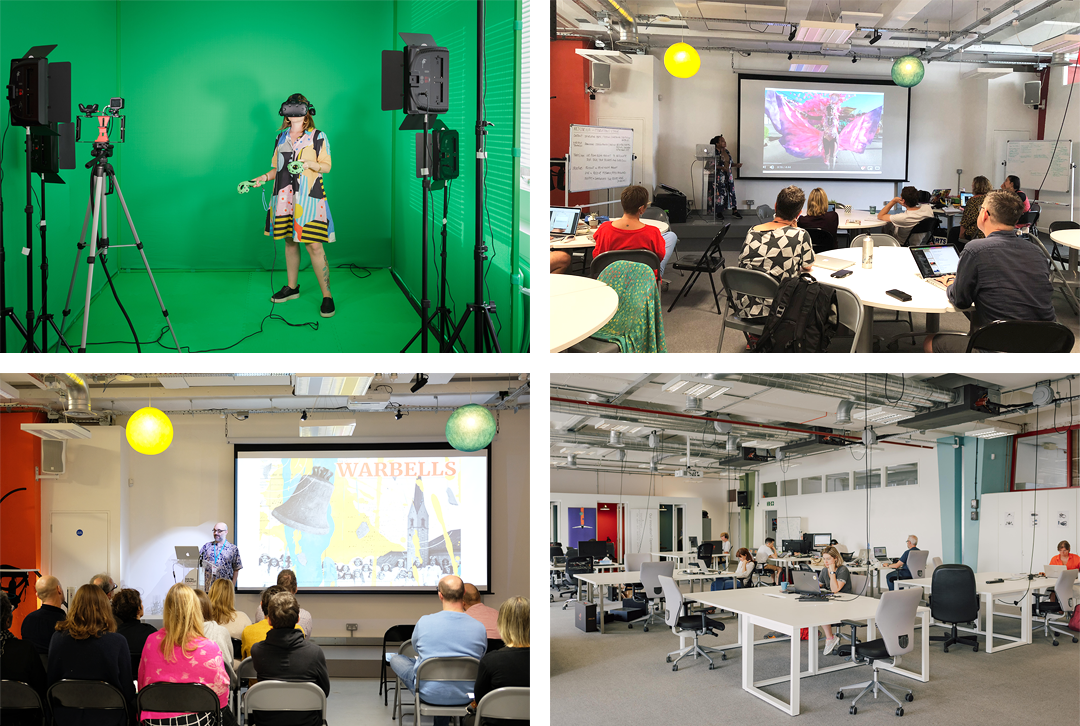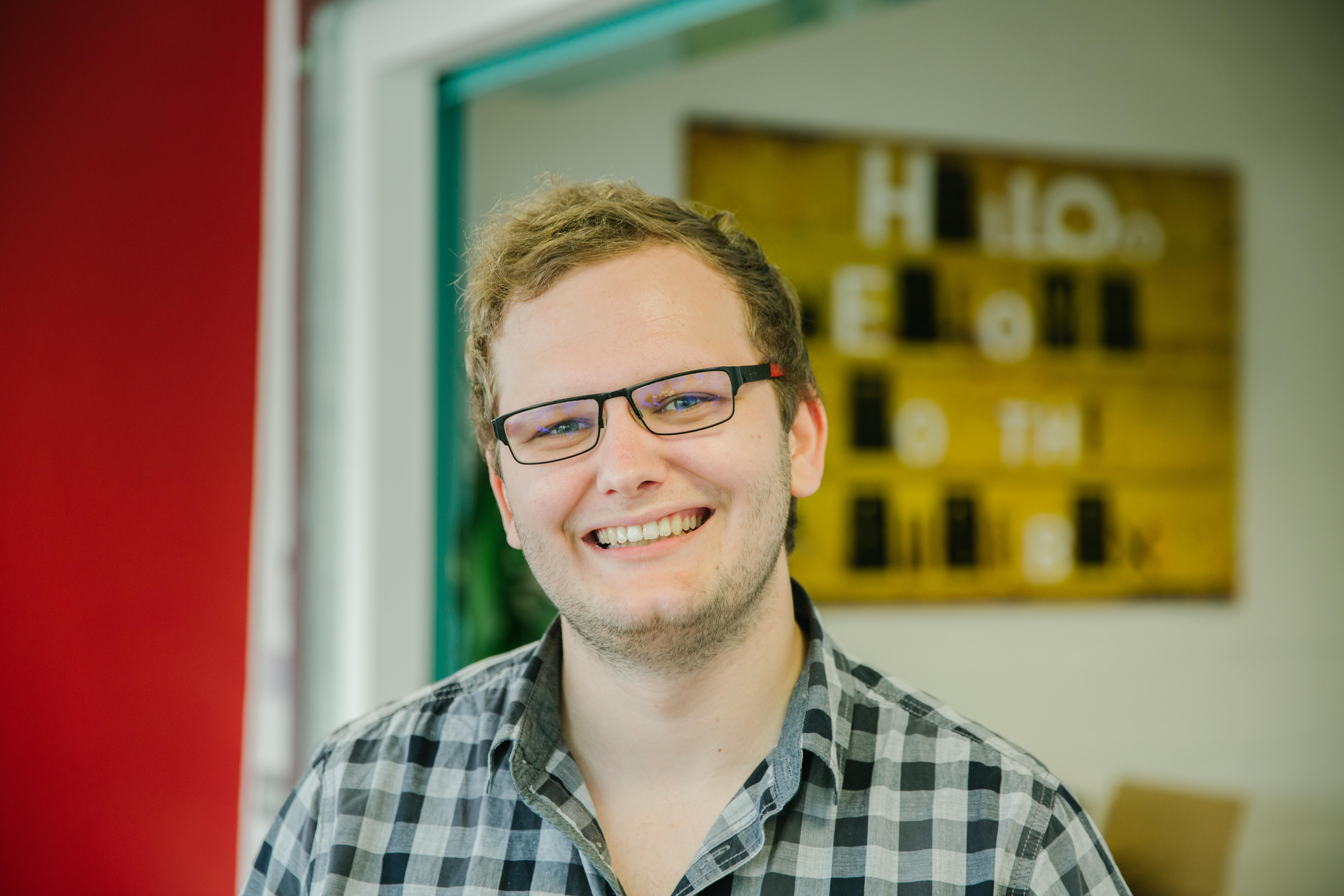Automation, efficiency & coworking continuity: the FuseBox case study
Wired Sussex is a not-for-profit membership organisation based in Brighton. It provides support to businesses operating in the digital, tech and the media sectors through networking events, meetups, industry speakers, job postings and the FuseBox.
An innovation hub for Brighton-based tech businesses
When we started out we realised there was a huge density of small startups in Brighton all working in relatively innovative areas; technologies like virtual reality, augmented reality and 5G and quantum computing, explains Emerging Technologies Coordinator, Chris Chowen.
We produced a report and realised that one of the best ways to bring these people together was to open an innovation hub, so we set up The FuseBox. It’s very heavily subsidised by Wired Sussex and in exchange, we get to be quite selective when it comes to memberships.

As well as being home to around 55 residents from 35 companies, The FuseBox acts as Wired Sussex’s HQ.
Although our members are doing different things, they're often working with the same fundamental technologies, Chris continues. We have an immersive lab on-site which provides all the VR equipment they need.
We’ve partnered with Digital Catapult in London and have a 5G testbed on site. We have an Ofcom license for our own network which means people can test VR over 5G. We also have an events space, meeting rooms and other typical coworking space facilities.
Chris’ role involves helping The FuseBox’s residents interact with the space’s technology by providing tech support and facilitating workshops. He also manages the space and its residents, primarily through the Nexudus platform.
From manual inputting to full automation
When Chris joined FuseBox in 2018, companies used Google Forms to apply for membership and billing was organised through Google Sheets.
Automation was nowhere in sight.
I spent the first two weeks when I joined as an intern building a new spreadsheet for data inputting – basically showing off because I was trying to get a job at the time! It became more of a task as time went on and in the end, there were two of us dealing with the admin.
The FuseBox team were also handling billing through invoicing and had to liaise with an accountant each month to follow up on unpaid invoices. Their website was designed through WordPress and it was proving difficult to make ad hoc modifications.
We thought there must be a better way, and that’s when we looked at Nexudus. I was researching websites, my colleague Rosalie was looking at management platforms and we both ended up landing on Nexudus, says Chris.
Automation means we’re able to operate with a lean team much more efficiently.
Chris admits that when he first started exploring the Nexudus platform, he kept finding features for things I didn’t even know we needed as a coworking space, such as signing residents and guests in. It was my first time working in an innovation space and Nexudus essentially taught me everything I needed to know about managing a space!
From check-in to events – The FuseBox’s favourite Nexudus features
1. Check-in
The check-in system is definitely a favourite, says Chris. We started using a checking in platform not long before we started using Nexudus and the justification of cancelling the cost of that alone almost justified Nexudus for us at that point. The cost savings were well worth it.
2. Room booking
Before discovering Nexudus Chris had a go at programming his own room booking system from scratch. It was the messiest, most convoluted system in the world. Then I discovered Nexudus’ room booking feature and didn’t look back.
3. Backend usability
The backend of Nexudus is fantastic. Any member of staff can easily submit blog posts and update events. Assigning tasks to admin users has been a real highlight; it just makes communication so much cleaner when people already know what they’ve got to do.
4. Directory
I can’t tell you how much effort it was to manually keep our website directory updated before Nexudus, says Chris. Nexudus has made things so much easier. We’ve had people coming to the site dynamically and it seems to be helping us from an SEO perspective.
5. Events calendar
Chris explains that the events calendar is also helping to generate traffic and keep residents engaged, adding: We use Eventbrite for most of our events so we tend to post the Eventbrite link straight to the events on the site.
The FuseBox team is looking forward to exploring virtual meeting integrations as well as surveys. We’ve not started using them but it’s on our radar for the future, Chris notes.
Customer service & business continuity in uncertain times
When asked about what it was like to liaise with the Nexudus during the onboarding phase and beyond, Chris says he was surprised at the level of support he received.
I just didn’t imagine that a platform like Nexudus that deals with such big clients would be able to spend so much time helping a small operator like us. The amount of support we’ve received really has been phenomenal.
I was trying to get to grips with the platform but at the same time, I was getting accustomed to the idea of running a coworking space. I had no manuals or books apart from our old systems. I learnt everything by asking the Nexudus team questions.
I don’t think The FuseBox would be anything like it is now without Nexudus, particularly with coronavirus and the situation the world’s in at the moment.
I also don’t think we’d have been able to react as quickly and have everything in order well enough to even be able to adapt. Just knowing what our residents are paying and what situation everyone is in has been so fantastic in keeping the place alive.
It’s also been drawing people to join the space which is all you can ask for!
Follow @fuseboxbtn on Instagram for regular updates.

Chris Chowen is the Emerging Technologies Coordinator at Wired Sussex. Among other things, he helps coordinate and run the FuseBox residency programme as well as manages the Brighton Immersive Lab. Chris' mission is to work with businesses to explore the possibilities and innovation opportunities within emerging technology markets.
Related stories
Global Coworking Trends and Opportunities for 2025
Now well into 2025, the coworking industry continues to demonstrate strong momentum. With demand for coworking spaces remaining steady around the globe, it's clear that coworking is not just enduring—it's thriving. Let’s explore the major trends and opportunities shaping the global coworking landscape this year.
Creating Events that Drive Community Engagement in Coworking Spaces
Community is everything in coworking, but a genuine sense of connection between members doesn’t magically happen overnight or by chance. Often, meaningful relationships take intentionality, effort, and time to build, with events being an effective vehicle for bringing people together around shared interests, goals, and experiences, creating opportunities for collaboration, and a thriving coworking culture. This article looks at creating events that drive community engagement in coworking spaces.
Liz Elam: ‘Community is the number one amenity in coworking spaces’
A household name in the global coworking industry, Liz Elam, is the founder of one of the world’s best coworking event series: GCUC. Liz’s coworking roots began in 2010, when she established Link Coworking – a welcoming, affordable, and professional coworking space – in her hometown of Austin, Texas. Link Coworking achieved incredible success, expanding across three locations and becoming the fourth-largest coworking brand in Austin. It was sold in 2019, making Liz the first woman globally to exit a coworking brand.
Key Takeaways from the Coworking Alliance Summit 2025
Gathering online for the Coworking Alliance Summit last week, members of global coworking alliances, coworking spaces, and community leaders came together to navigate global issues, strengthen ties across the coworking industry, and work collectively towards future goals.
5 Ways to Reduce Noise in Open Offices & Coworking Spaces
Some people like working against a background of noise, while for others it’s their worst work nightmare. The truth is, our relationship with noise depends on our own preferences and the nature of our work.
Key takeaways from the Workspace Design Show 2025
London’s Workspace Design Show is undoubtedly one of the best coworking events of 2025. For one, the exhibition (held at Islington’s Business Design Centre) features a host of innovative and creative workspace design solutions tailored to the needs of modern workplaces.
What Is Workplace Management and Why Does It Matter?
There has always been a need for workplace management – the process of organising and optimising physical spaces, resources, and operations to support people’s needs. But, as 28% of UK working adults were reported to work in a hybrid capacity last autumn (by the Office for National Statistics), the question of ‘why workplace management matters’ is more critical than ever. Let’s look at the workplace management benefits for your operations.
10 Smart Goals for your Coworking Space: How to Set & Achieve Business Objectives
Coworking is synonymous with creativity, collaboration and productivity. Businesses and freelancers love coworking spaces because (by surrounding themselves with fellow workers) they’re more likely to achieve their goals. The coworking environment, while social, is set up to facilitate focused, distraction-free working.
The Best Coworking Events in 2025: Must-Attend Gatherings for Professionals
Managing coworking spaces is an all-encompassing role, often leaving operators, owners, and community managers with little time to focus on personal growth or draw inspiration from others.
10 Award-winning Coworking Space Designs: A Comprehensive Guide
Vibrant, contemporary workspaces create an undeniable ‘wow’ factor. Textured designs and ambient lighting make spaces feel warm and cosy, while natural elements and biophilic design features have literal mood-boosting properties.

